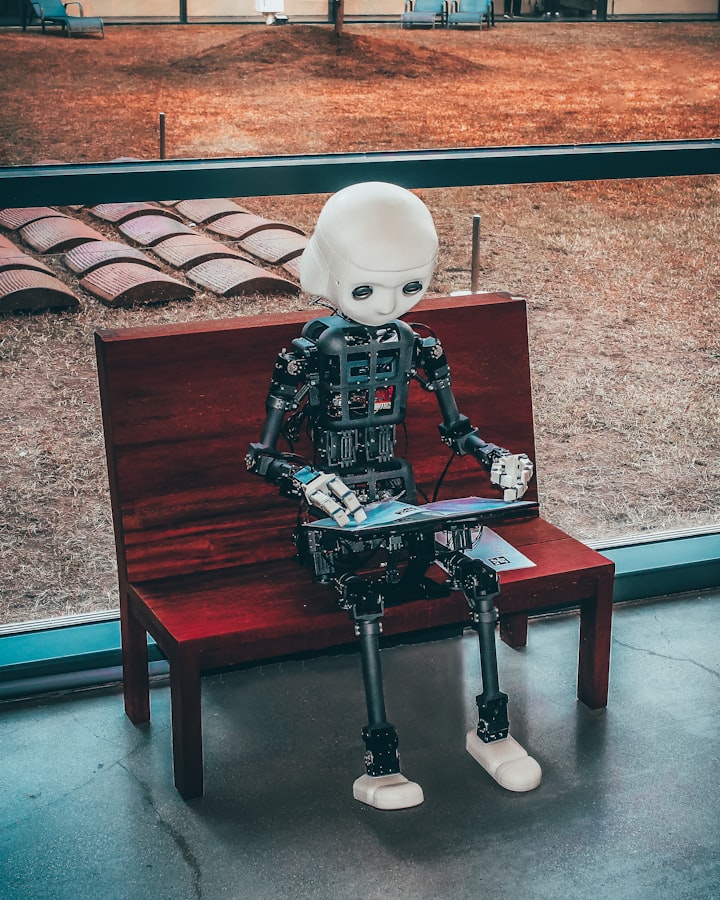Revolutionizing the World: The Impact of Artificial Intelligence
Understanding the potential and limitations of AI in shaping our future

Artificial Intelligence (AI) is rapidly changing the world as we know it. From healthcare to transportation to entertainment, AI is having a profound impact on many different industries and aspects of our daily lives. The advancements in AI are allowing us to achieve things that were once thought impossible, and it has the potential to greatly improve many aspects of our lives. However, as AI becomes more advanced, it is important to understand the potential limitations and risks associated with this technology in order to shape its development in a way that maximizes its potential while minimizing its risks.
One of the most significant areas where AI is having an impact is healthcare. AI-powered systems are being used to analyze large amounts of medical data to help doctors make more accurate diagnoses and develop new treatments. For example, AI-powered systems can analyze medical images such as X-rays and CT scans to identify signs of disease, which can help doctors make a diagnosis more quickly and accurately. Additionally, AI is being used to help develop new drugs and treatments by analyzing large amounts of genetic and medical data. In the field of genomics, AI is helping to identify new drug targets, and has the potential to speed up the drug development process.
Another area where AI is having a significant impact is transportation. Self-driving cars are being developed that have the potential to greatly reduce the number of accidents caused by human error. These cars use AI to process data from sensors such as cameras and lidar, which allow the car to sense its environment and make decisions about how to navigate. Additionally, AI is being used to optimize traffic flow in cities, which can help reduce congestion and make it easier for people to get around.
In entertainment, AI-powered personal assistants like Amazon's Alexa and Google Home are becoming increasingly popular, making it easier for people to control their homes and access information. These systems use natural language processing to understand and respond to voice commands, which makes it easy for people to use them. Additionally, AI is being used to recommend content on streaming services like Netflix and Spotify, which helps people discover new movies, TV shows, and music.
However, as AI becomes more advanced, it's important to understand the potential limitations and risks associated with this technology. One major concern is the potential for AI systems to be used to perpetuate bias, particularly if the data used to train them is biased. This is because AI systems learn from the data they are trained on, so if that data is biased, the AI system will be too. For example, if a facial recognition system is trained on a dataset that is mostly comprised of images of white people, it may not be able to accurately recognize people with darker skin tones.
Another concern is the potential for AI systems to automate certain jobs, which could lead to widespread job loss. As AI systems become more advanced, they will be able to perform many tasks that are currently done by humans, which could lead to widespread job loss. This is particularly a concern in industries like manufacturing and transportation, where many jobs are already being automated.
Additionally, the potentials of AI in military and security sector, raises questions about how to ensure that AI-controlled weapon systems are used responsibly and ethically, as well as the potential for misuse. With the rapid development of autonomous weapons, the risk of AI-controlled weapon systems being used to violate international law, human rights, and to perpetuate conflict escalation is increasing.
As AI continues to evolve, it's important to understand both the benefits and the limitations of this technology in order to shape its development in a way that maximizes its potential while minimizing its risks. This requires active participation and collaboration of governments, private sectors, researchers, and civil society to identify and address the potential challenges, as well as to establish ethical guidelines.
- I have provided you a comprehensive overview of how Artificial Intelligence is revolutionizing the world and the potential limitations and risks associated with this technology. The rapid development of AI is leading to significant advancements in many different industries, but it's important to be aware of the potential limitations and risks of this technology in order to ensure that it is developed and used in a responsible and ethical manner. It is a complex and multi-faceted topic that requires active participation and collaboration from various stakeholders to address the potential challenges and establish ethical guidelines and regulations. If you have any further questions or specific areas of interest, please let me know in the comment and I'll do my best to help.
About the Creator
Laktish Rouben
By continuing to read my blog geo-politics, you'll gain a better understanding of the forces shaping the world today. My posts provide a unique perspective on the most pressing issues and stay up to date on the latest developments.






Comments
There are no comments for this story
Be the first to respond and start the conversation.